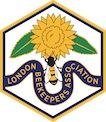
|
London Beekeepers' Association |

|
London Beekeepers' Association |
What's in Flower in October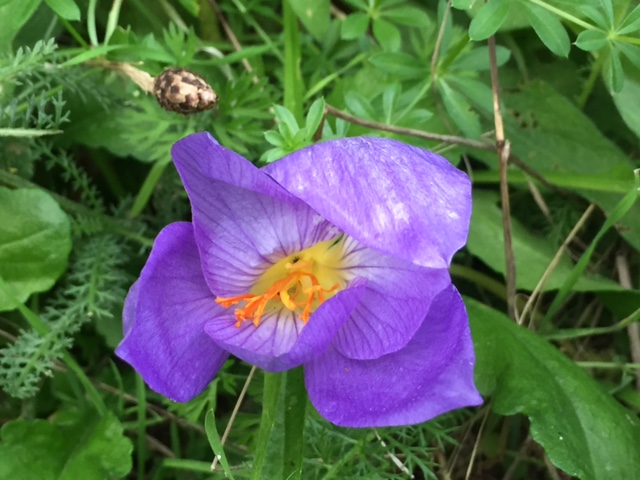 Autumn crocus. 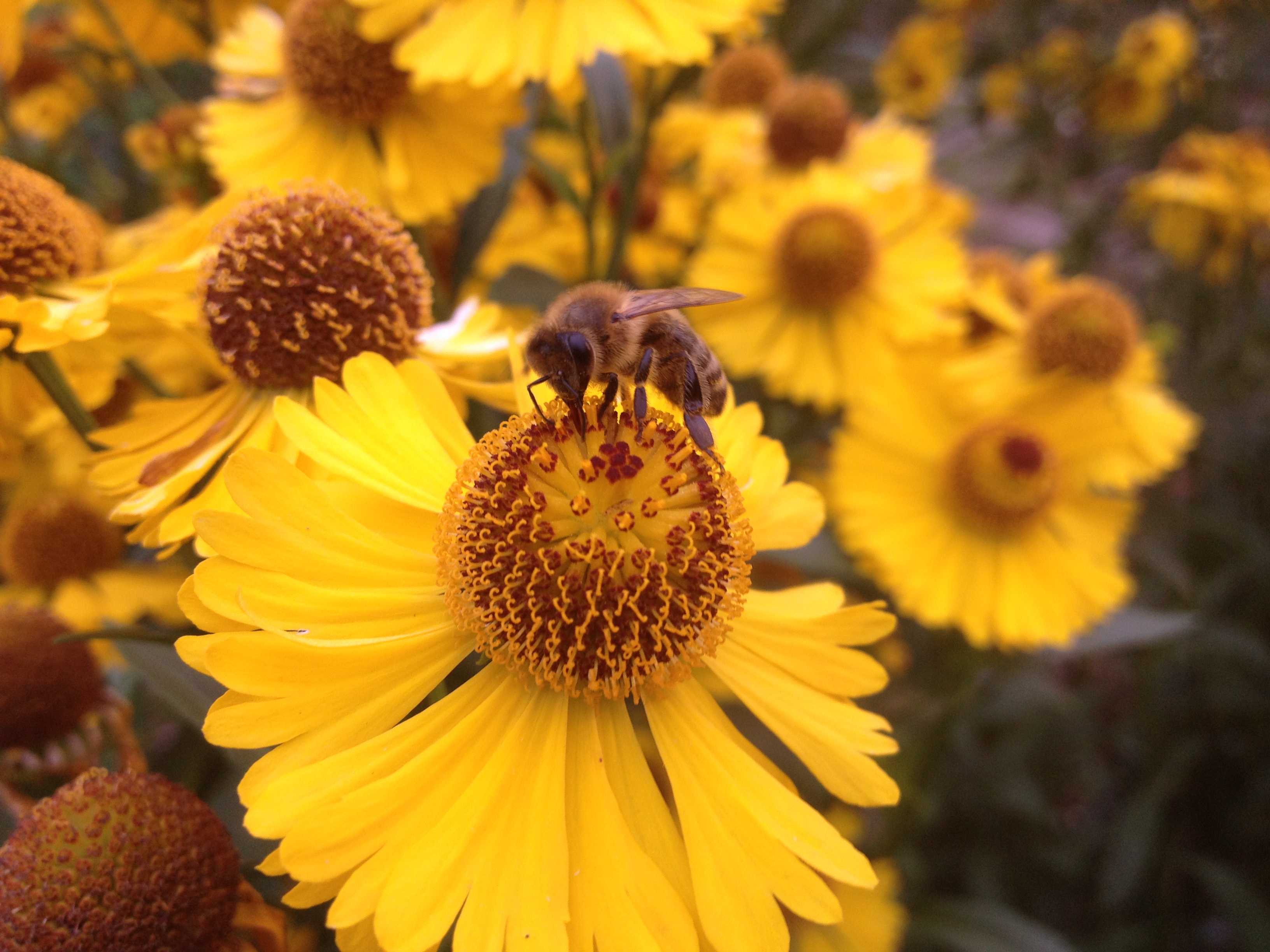 Golden rod. 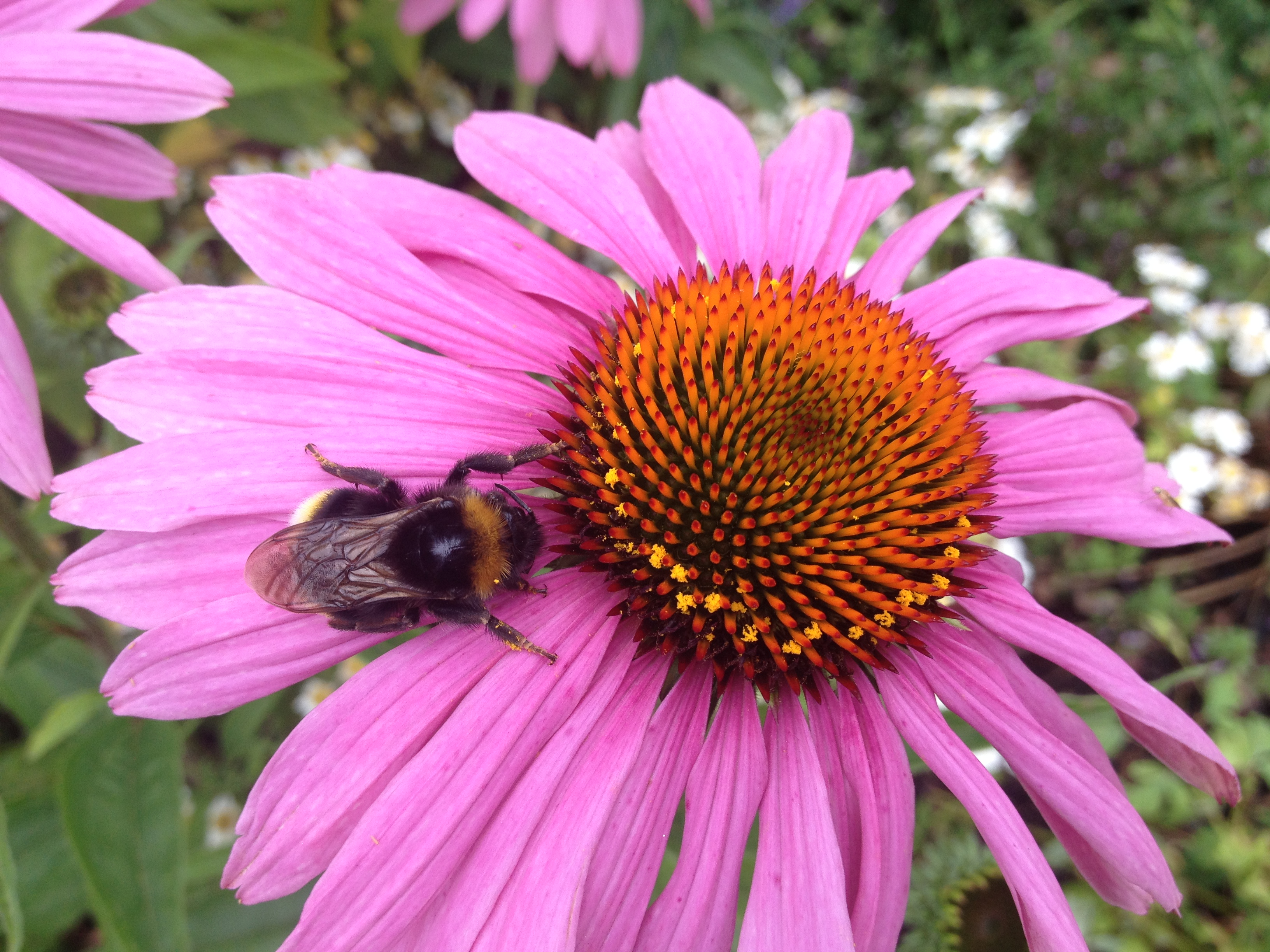 Echinacae 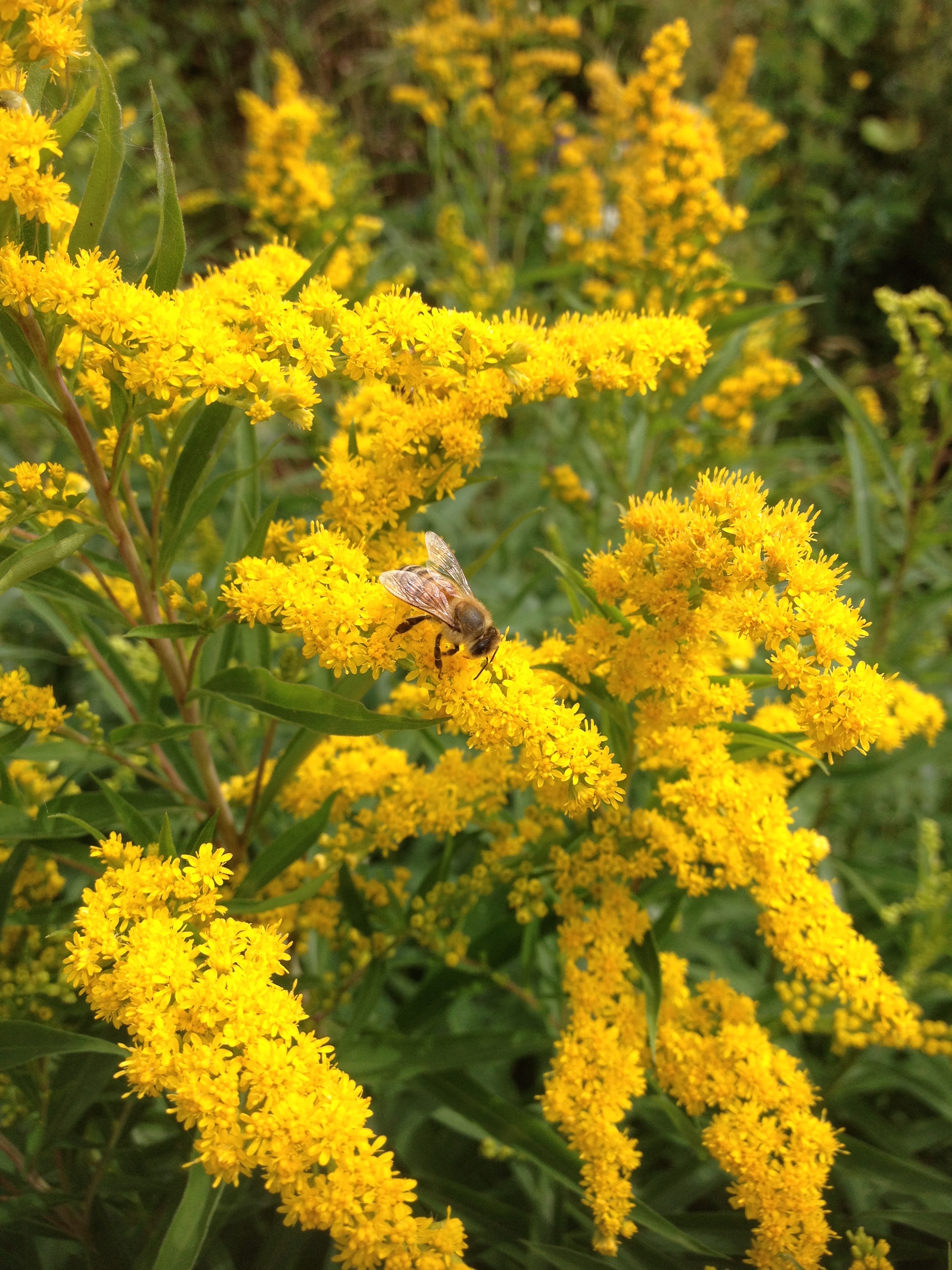 Golden rod. [What's in flower, month by month] Mark Patterson October signals the end of the active foraging season for our bees. By the end of the month our colonies must ensure they have sufficient stores of honey and pollen to last them through until spring. Pollen becomes available again when the crocus and snow drops bloom but the weather is often too cool for the bees to fly to take advantage of it. Nectar is an even longer wait. It's usually April when the first substantial nectar sources begin to flow so October really is a ''make-or-break'' month for our bees if they still need to pack away winter stores. Apart from ivy, substantial blooms of any particular plant are becoming rare this month. In gardens Dahlias, Echinacea, Rudbeckia and Cosmos persist but they will soon begin to keel over as the first frosts hit. Winter flowering shrubs like Viburnum tinus are however starting to bloom and will peak at around New Year. These offer the bees pollen and sometimes nectar when winter days are mild enough for them to fly. In about a month's time we should see the first Mahonias begin to bloom. These are frequented by honey and buff tailed bumble bees on mild winter days. Jobs to do in the garden this month include propagating semi ripe cuttings from your favourite flowering shrubs. Lavender, rosemary, hebe, flowering currants are all easy to propagate in this way. Push 6'' cuttings into gritty compost and keep cool and moist over winter. If you're planting bulbs for bees, October is the best time to do this. As leaves start to drop from trees, collect and bag to make leaf mound to mulch plants next year. Mulching helps prevent plants drying out in dry weather and helps to keep them flowering and your bees well fed. As perennials begin to die back you may want to begin clearing the old stems. Some plants benefit from having their core exposed to the cold over the winter whilst others benefit from the insulating properties of their dead stems and leaves. |
©2026 London Beekeepers' Association |